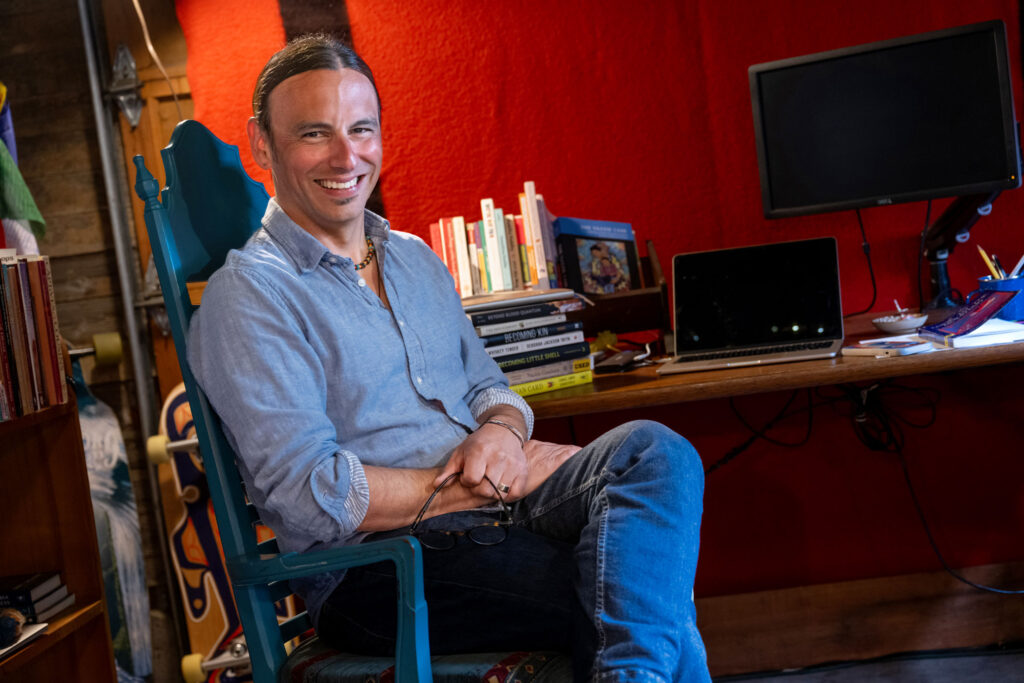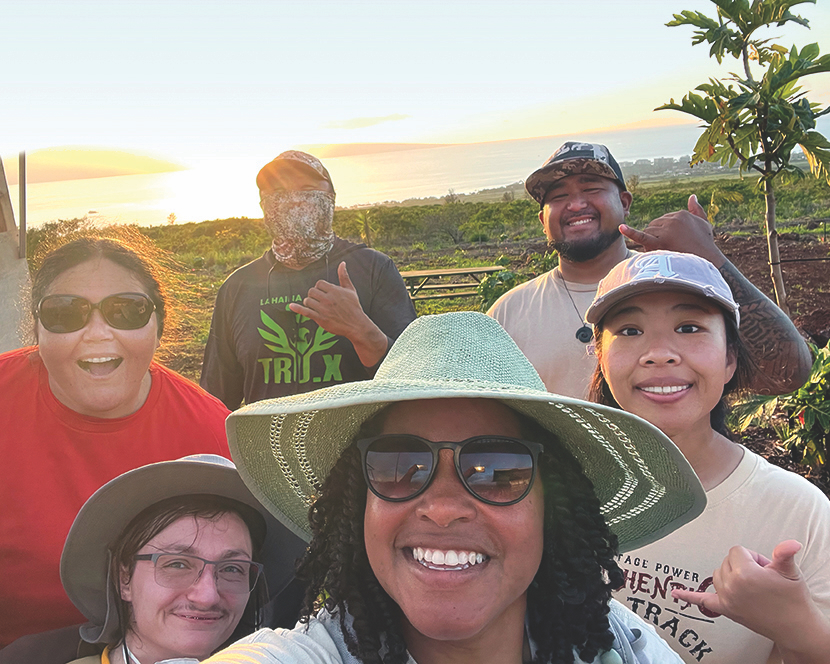Faculty spotlights
EXPERIENCES IN DISABILITY LEARNING

Dr. Naranjo brings future educators into community.
EARLY IN HIS CAREER as a public-school teacher, Dr. Jason Naranjo saw a special education system that didn’t work for students with disabilities. So he began to educate himself on the issues and research ways to help those students — which then led to a university career teaching the next generation of educators about disability and how to make schools more equitable places to learn and teach.
Naranjo, associate teaching professor and special education program coordinator, has been teaching in the School of Educational Studies for more than 12 years. Experiential learning in the community is central to his courses. “We don’t ever solve or address big questions in isolation,” he said. “For me, fundamentally, that comes from an understanding that our best work is done in community.”
One of his most impactful courses, Disability & Society, was developed after hearing many students ask for more experiences outside of the classroom that address issues of access and disability. Students in the class work with local nonprofit Outdoors for All, supporting people with disabilities so they can both play and learn in the outdoors.
Volunteering can be overwhelming at first for students, but Naranjo said the experience is crucial. “They need to be challenged in ways that are safe and that promote growth.”
Naranjo’s classes are formative for many students, teaching them about disabilities for the first time. “As educators, we have the responsibility to help students understand and embrace disability so they can support one another and themselves in meaningful ways,” he said. “Disability is a core part of the human experience. At some point in our lives, we all experience it — all of us.”
Support professors like Dr. Naranjo with their innovative classes and research by giving to the School of Educational Studies Excellence Fund.
PARTNERING IN FIELD RESEARCH

Students turn research into purpose with Dr. Malone.
BLENDING SOIL SCIENCE with social equity, Dr. Melanie Malone leads community-centered research that connects UW Bothell students to meaningful work.
As an environmental scientist and associate professor in the School of Interdisciplinary Arts & Sciences, her research in recent years has spanned regional community sites, urban gardens and the fire-ravaged lands of Lahaina, Hawaii. Malone has been with UW Bothell since 2018 and has received multiple regional and national awards for her work, as well as multi-million-dollar research grants. Her approach to every project is just as compelling: deeply embedded in the community, focused on equity and driven by student engagement.
Students in Malone’s classes and labs don’t just learn about contamination and environmental justice. They also do field research and analysis in impacted neighborhoods, collect soil and water samples, meet with community partners, and collaborate on solutions to restore their environments.
“A lot of my students aren’t environmental science majors,” Malone said, “but once they see the impact of their work, it changes what they think is possible.”
That was the case for Simon Richard, a UW Bothell student who took Malone’s Environmental Justice class in 2020. The class sparked his interest and led to his continued involvement in her research. Now working as Malone’s research assistant, he’s participated in projects locally and even traveled with her to Hawaii to help train nonprofits on contamination testing in Lahaina.
Malone’s work is a powerful example of how faculty at UW Bothell open access to research, mentorship and real-world change. “My students gain technical skills, yes,” she said. “More importantly, they learn what it means to do ethical, reciprocal work that matters to communities.”
Help interdisciplinary faculty with funding new curricula and research by making a gift to the Interdisciplinary Arts & Sciences Excellence Fund.